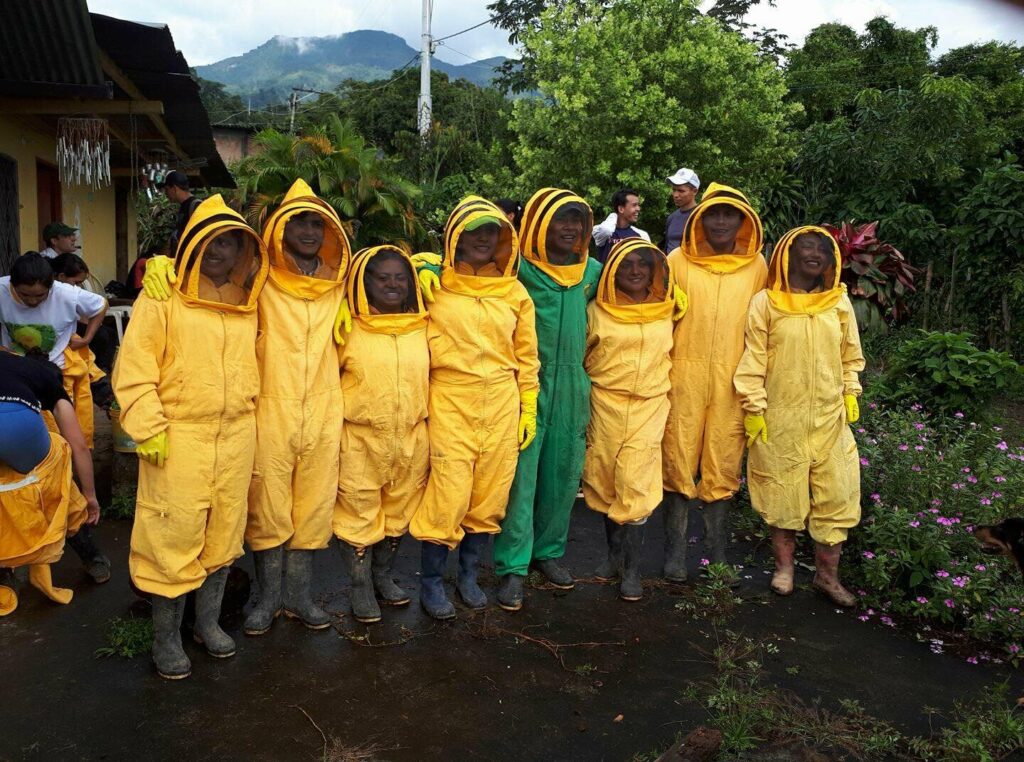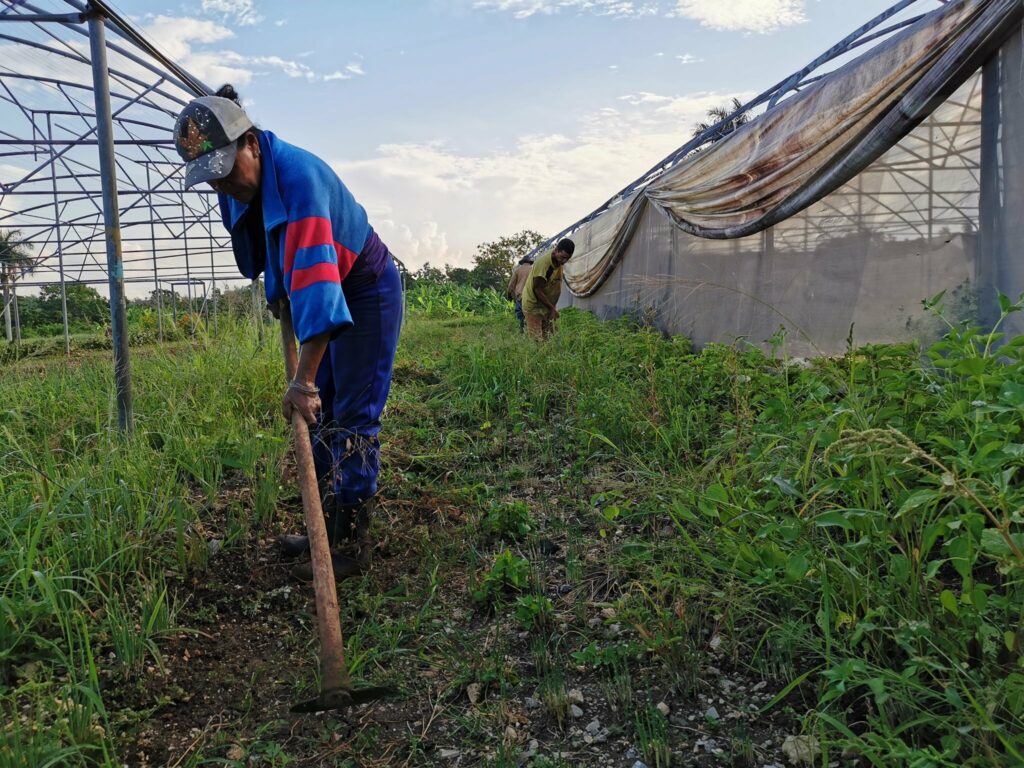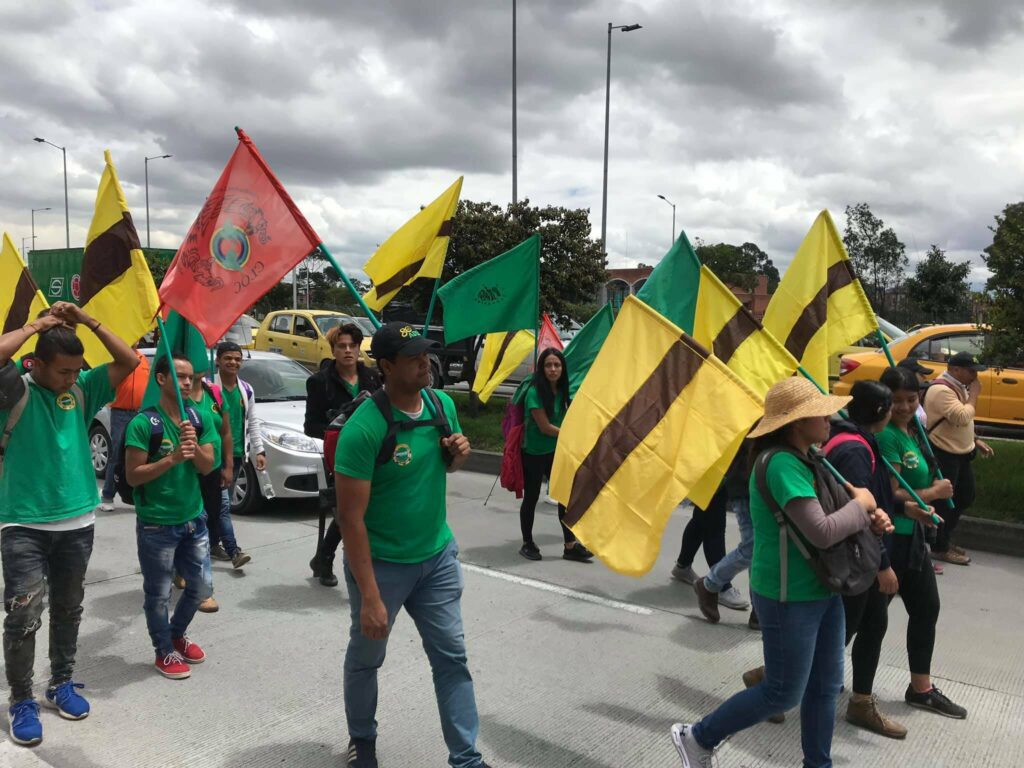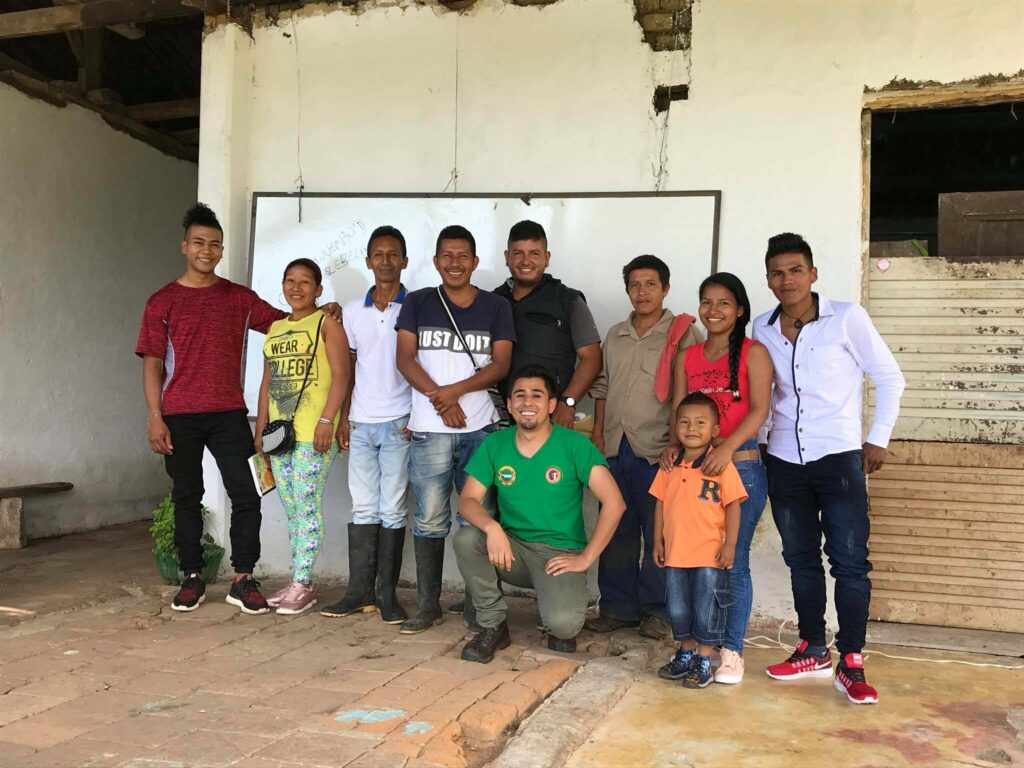The Latin American Coordination of Rural Organizations (CLOC-Via Campesina) is a continent-wide network representing peasant, worker, indigenous and Afro-descendant social movements from all over Latin America. An ally of La Via Campesina International, at present they bring together 85 organizations in 21 countries of Latin America and the Caribbean.
In the regions where CLOC is active, the rise of the industrial food system has led to land grabbing, poverty, malnutrition, an increase of suicides in the countryside due to debt, the persecution or disappearance of social leaders and out-migration of rural populations to the city. The growth of agribusiness has fuelled an alarming loss of biodiversity, the destruction of agro-ecosystems, and climate change.
CLOC-Via Campesina was founded in Lima, Peru, in 1994, to fight against these adverse impacts and strengthen rural resilience.
The fight for agrarian reform
CLOC opposes Free Trade Agreements and regulations to control seeds and biodiversity. Through its campaigns, it resists the imposition of monoculture, agrochemicals, transgenics, automated mechanization that envisions agriculture without farmers, and financing plans that push peasant communities into debt.
“Ours is a fight for the land and comprehensive agrarian reform. It incorporates food sovereignty, which proposes access to food as a right of humanity. Land and water should be in the hands of those who feed the people,” said Nury Martinez of the National Federation of Agricultural Unions (Fensuagro) of Colombia, which is part of the network.
The network’s goal is agroecological production which respects Pacha Mama, or Mother Earth. CLOC has been developing strategies to ensure that Latin American peasants are legally recognized and protected, which is why it has endorsed the United Nations’ Declaration of Peasant Rights.
A few years ago, Fensuagro proposed a curriculum to train young people in agroecology. In 2016, the Latin American Agroecological Institute IALA María Cano, based in Viotá-Cundinamarca, was launched. The next year, 30 young peasants, indigenous people and people of African descent began the Agroecology Technology Program in the Colombian countryside.




Good food for everyone
This IALA, along with several other Latin American IALAs that are part of CLOC-Via Campesina, encourages the youth to value food sovereignty, defend territories and protect their native seeds and peasant culture. It provides formal education for peasants, so that young people are motivated to stay in their territories, live well, and adopt good practices in the production and marketing of chemical-free produce. In this way, agroecological practices are scaled up and out from the grassroots.
“If we have a strong peasantry, we will have the possibility of producing good food for everyone, managing carbon, cooling the planet and generating employment and genuine economic development,” says Raúl Krauser, from the MPA (Small Farmers Movement of Brazil, Movimento dos Pequenos Agricultores), which is also part of CLOC.
Now, in the midst of a global pandemic, the failure of the system to guarantee food for the population in critical moments is evident. Even before Covid-19, peasants united to feed the people. For instance, in Rio Grande do Sul in southern Brazil, peasants that practice agroecology ensure 300,000 kilos of food per month goes to the poor neighbourhoods of the city. Now, through solidarity efforts across Latin America and the Caribbean, they show that agroecology is capable of addressing food crises.
The peasantry’s fundamental role in food production and resilience in the face of adversity is already apparent. In order to face the crisis, governments should prioritize genuine agrarian reform to guarantee the conditions that will allow peasants to ensure the food sovereignty of their countries.
A version of this article was first published in Biodiversidad (Issue No. 104, April 2020). Translated and reprinted with permission. Photographs courtesy Fensuagro.
